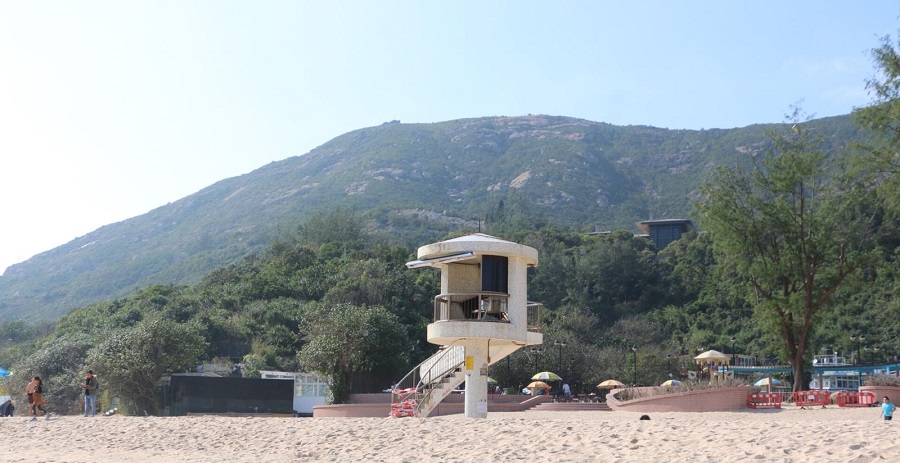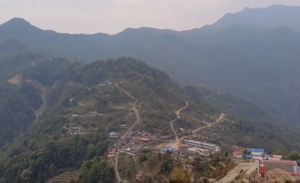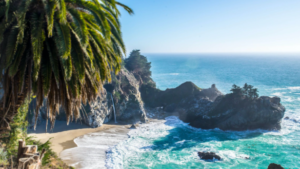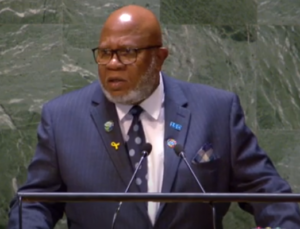The Future of Travel and Tourism: Post COVID -19

By Justin Francis —–
Commentators, environmentalists, airline bosses and people like me who run travel companies are being asked about the ‘future of tourism’ post COVID-19.
The problem starts right there. Views from all these people are important, but the underlying reason for many of the problems in tourism is that we rarely, if ever, ask the views of local residents.
They ‘host us’ in places they call home, earn their incomes from tourism, and put up with the problems we cause. Theirs are the most important, and the most conveniently ignored views.
While I’m reading of some journalists’ delight about the reduction in CO2 from flying (something we’ve been campaigning on for over a decade) and statements like ‘when the world stays home, the planet benefits,’ I’m thinking about some of my friends in Kenya.
I’m a Director of a safari company near the Masai Mara National Reserve. The Maasai community are dependent on tourism and cattle. There is now no tourism, and the markets are closed. They cannot buy food or easily sell cattle. There is no Ocado.
Large families live in small accommodation of just a few rooms. Social distancing is impossible. They don’t have our healthcare system, or most likely any savings at all.
So, my first wish for the future of tourism is that the views of local residents are given equal billing to those in the industry, Government and the environmental movement.
By all means ask me for a comment, but publish my thoughts alongside that of local residents, and pay as much, or more attention to their thoughts as mine. While we are sharing our philosophies they are wondering how to pay their rent or feed their families tonight.
North vs. South and Big vs. Small
Tourism destinations and business in the developed North are far better prepared to weather the storm, than small and micro businesses in developing countries. We have ‘furloughs’, grants and loans and of course better medical facilities.
The recovery will not be equal. For a time, tourism will narrow down even further on a few trusted favourites, mostly in the North, who are able to invest quickest in health screening and guarantee good medical care in the destinations.
Some destinations who can afford it will essentially pay tourists to come. Sicily will pay half the cost of flights, a third of your hotel bill and offer free tickets to museums.
Rather predictably some tourism giants have thrust themselves to the front of the queue for bailouts. The cruise industry in the US were required to include their tax status, they are registered overseas to avoid tax and regulations on staff welfare, and (appalling) environmental records.
They were denied bailouts, being told that the US Government didn’t recognise them as US companies. What goes around comes around.
The vast majority of people who work in tourism, reputedly 1 in 12 globally, work in small or micro businesses (restaurant staff, taxi drivers, hotel room service and front desk, curio and craft sellers, guides for museums, etc) and not global corporations.
My second wish is that those most in need of support get it, and that the developed North who rely on many less developed countries to deliver their ‘product’, provide the support needed to rebuild tourism ‘together’.
Climate Change
Tourism won’t be one of the industries hardest hit by the virus, it will be the industry hardest hit.
The World Travel and Tourism Council say that 100m jobs will be lost. In Spain and Italy tourism accounts for 13% of all jobs. In some developing countries and small island states it’s much higher.
In some of these places there cannot be a quick economic recovery without a tourism recovery. There will be a tremendous drive to rebuild the industry fast.
In doing so, there will be temptation to sideline climate change. It would be a huge mistake, but there are perhaps reasons to be hopeful.
Over recent decades Governments have taken a hands-off approach to regulating business, and no more so than with aviation (or indeed tourism in general, which is often regarded as a benign pastime).
Aviation fuel is untaxed, and the global organisation charged with managing the aviation’s carbon emissions (ICAO) is funded by the aviation industry.
During the crisis we’ve seen, with public support, Governments take a much stronger hand with business. If the same support was to exist for climate change we may hope for more regulation and taxation of aviation. We propose a Green Flying Duty that would serve to accelerate investment in renewable aviation fuels.
So, my third wish is that Governments act like we (local residents, tourists, the industry, the environment and our shared cultural heritage) are in this together and take a stronger hand in regulating tourism for the benefit of all, people and planet.
Nature and Biodiversity
Tourism has a mixed reputation for conservation. Many a mangrove has been dredged up to create a perfect looking beach. Habitats have been destroyed to build hotels, roads and other tourism infrastructure.
The meat and dairy we eat, as tourists and at home, contribute to further erosion of space for nature, and encourages intensive agriculture drenched in pesticides and herbicides.
However we should be careful what we wish for. While we marvel at wildlife returning to Venice now that tourists have left, and it warms my heart, we pay less attention to rhinos being poached in Botswana because; tourism can no longer protect them; local people are desperate; and ecotourism has dried up. Tourism is part of the problem and part of the solution for nature conservation.
Confidence
It’s important to remember that the tourism industry is not built on airports, airlines and hotels. It is built on giving people enough confidence to pay in advance for a service or experience delivered at some point in the future. With that has come an unquestionable assumption that personal health will not be compromised by travelling, and a presumption that if we were to need treatment overseas, it would be relatively easy to access. Both have been shattered.
While many tourists are rebooking for the future, or agreeing to credit notes, those who want a refund are finding it hard to get one.
Essentially it’s become evident to customers that travel businesses use their deposits to fund their operations, and get through low seasons.
It’s something of a Ponzi scheme, but few tour operators are refusing refunds from choice. First, they have to reclaim money paid out to hotels and airlines in advance. The problem goes all the way down the line. Secondly, by giving refunds, travel companies risk becoming illiquid and going bust, meaning that not everyone will get a refund or their future, rebooked holiday anyway.
There are intense conversations between the industry and Governments about what to do about this. My own view is that to rebuild confidence customers’ money will have to be held in independent trust accounts, which some operators already do.
Who will be able to afford to travel ?
Once again, we are absolutely not in this together.
While we focus on medical bulletins, what lurks in the background is recession, unemployment and in many cases poverty.
The wealthier will still be able to travel, and that’s a very good thing. We desperately need the jobs and livelihoods their spending creates. However the democratisation of travel will take an uncomfortable backward step.
It’s all very well for us to say how important it is to rediscover simple pleasures closer to home (and I support that) but it’s easier to accept if you have enjoyed a lifetime of travel, have pristine and beautiful green spaces close to home, and are well served with museums, art and sporting facilities.
If you are younger, live in cramped conditions, have never travelled, but have always dreamt of visiting New York or Vietnam it’s a different story. I’d be fascinated to see any comparative figures on how many holidays people from BAME backgrounds take.
My fourth wish is that we remember the huge value the democratisation of travel has brought to the quality of many people’s lives, indeed all our lives. If tourism assets are underused as the recovery begins let’s keep democratising travel.
We made a small start on this a few years ago with our Trip for a Trip scheme, where we’ve funded day trips for over 3,500 children from disadvantaged backgrounds.
The Citizen Tourist
Much has been written about the new community spirit fostered under the crisis, particularly about how we are all looking out for each other and the vulnerable.
My fifth wish is that as tourists we hold onto this mindset as we travel, and reward travel companies who can demonstrate they care about local residents, culture and environments throughout their entire operations (not just through token donations to charity).
We see extraordinary customer reviews on Responsible Travel. Many customers find a deeper connection with places and more authentic experiences as a result of tourism designed together with local communities.
Technology
One thing that is more certain is that there is no way back from our adoption of new technologies. I think it’s exciting to imagine I might have a video call with the local tour guide or driver, or a hotel sales person who could give me a quick tour before I book my trip. How much more certain that’s going to make my choices.
I’ve enjoyed watching live streamed events from home, and will continue to do that in the future. However, for me technology is a poor imitation of real life, and it won’t replace my travels.
Medical
I’m not going to attempt to add to more expert, and daily changing, commentary on vaccines, immunity passports, airport testing or other ways to restart travel and tourism.
A lot needs to change before confidence returns to past levels, but I believe it will. I have a yellow fever and typhoid vaccination, which I never think about. I will have a COVID one too some day.
In Summary
If we are to rebuild tourism better than before, and parts of the industry were well on the way to being pariahs in the eyes of both local residents and environmentalists, then I believe we must act and behave like we are ‘all in this together’.
My sixth and final wish is that we treasure what tourism offers. When done right it’s a joyful and important industry, and one that deserves rebuilding carefully. Courtesy: Responsibletravel.com
Image : Ocean Park area in Hong Kong / Travel Biz News
April, 2020












